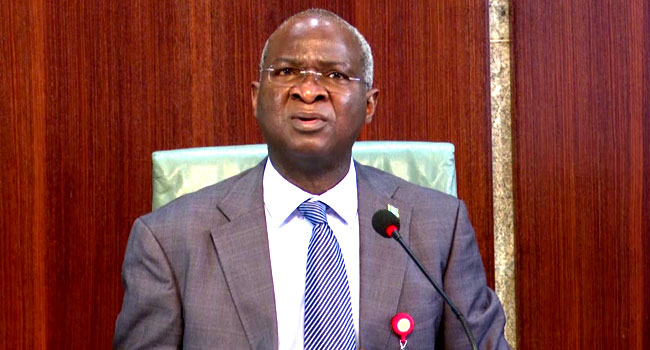
In a meeting with the Presidential Advisory Committee on National Dialogue, held in his office, governor Fashola maintained that it was impossible to say with any exactitude if the President was right or wrong on his decision to embark on the initiative.
Fashola expressed resentments about the timing of the conference and pointed out that dialogue by its very definition demands that all views, both agreeable and disagreeable must be listened to.
“If those that do not agree are heckled and shouted down, then the platform for dialogue is immediately weakened,” he said, making reference to the heckling down of the governor of Edo State, Adams Oshiomhole, in Benin City during a similar visit by the committee.
“If we refuse to listen to the views of those who don’t think that we should be doing what we are doing, it portends for me great concern about whether or not we can dialogue and indeed if we should be having one,” he emphasised.
The governor insisted that the onset of the exercise “is the strongest implication on the challenge of leadership question that we face as a nation.
“If we do not believe that our elected leaders in the National Assembly can undertake the task for us then we must begin to imagine how many possible people and groups seek to.”
He stated that the position taken by the Edo State governor was the one that appealed to him.
Issues Of Dissatisfaction
“The reason I stand by governor Oshiomhole’s position in Edo is the underlying question we are both asking; what are we supposed to be talking about?
Governor Fashola further said that some of the issues of dissatisfaction in Nigeria lie in areas where there is no need to talk.
He listed the areas of concern to include unemployment, education, inefficient transportation system, irregular power supply, hunger and national security.
All these, he pointed out, could be resolved with “concrete economic plans of action, a clear roadmap for addressing all stakeholders, parents, teachers and students in that sector, urgent infrastructural renewal plan for the country and a vigorous and impassioned implementation of the power sector reform agenda.
“I believe that what Nigerians want is not just a better document but a better life.”
He also advised the committee to take a critical look at the report of the constitutional conference held in 2006, as many areas were vigorously and passionately defended, compromised and agreed.



